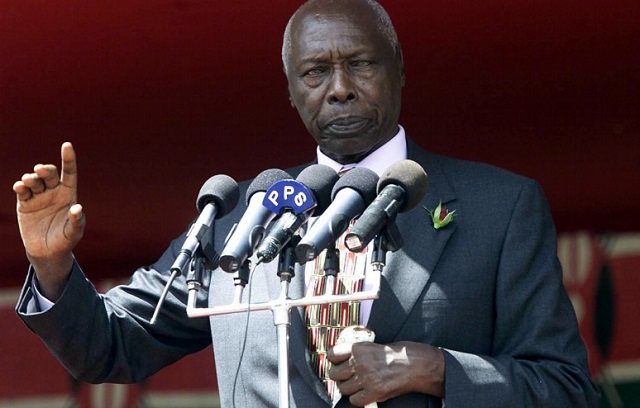
President Museveni describes him as a strong leader who came to power at an opportune time for Kenya
| THE INDEPENDENT | When Daniel arap Moi became president of Kenya in 1978, he had been vice president for 11 years from 1967 after Kenya’s first president, Jommo Kenyatta, in 1964 convinced him to merge his Kenya African Democratic Union (KADU) party with the ruling Kenya African National Union (KANU).
When he came to power, Moi and Julius Nyerere of Tanzania and Keneth Kaunda were the only civilian presidents in a sub-Saharan region ruled by generals who had come to power after toppling Africa’s independence presidents in military coups. Gen. Idi Amin was president in Uganda, Gen. Mobutu Sese Seko in then Zaire now DR Congo, Gen. Siad Barre in Somalia, Col. Mengistu Haile Mariam in Ethiopia, Gen. Jaafar Muhammad an-Nimeiry in Sudan, Col. Gadhafi in Libya, Gen. Anwar Sadat in Egypt, Col. Jean-Baptiste Bagaza in Burundi, and Gen. Juvénal Habyarimana in Rwanda.
Forty-two years later, at the time of Moi’s death, all the generals are gone; all in ignominious fashion after they clang on to power for too long, brutalised the citizens of their countries, were forcefully kicked out of power. Many died in exile from their countries and were buried in unmarked graves with their children and family scattered across the four corners of the earth.
Only the civilians; first Nyerere, then Kaunda, and finally Moi survived when they handed over power peacefully. In passing, therefore, Moi represents the last of a generation.
Moi ruled Kenya for a long time; 24 years but in 2002 peacefully handed over power after an election in which his party, KANU, was trounced by a united opposition coalition. Moi who once held the moniker of “professor of Kenyan politics” because of his political deftness fell on the sword of growing discontent, a floundering economy, and increasing external pressure to quit, from America and Britain. The Goldenberg scandal and torture chambers in Nyayo House will forever be associated with Moi’s years in power. On December 30, 2002, when Moi handed over the presidency to Mwai Kibaki at Uhuru Park in Nairobi, part of the crowd pelted him with stones and threw dirt at him.
But Moi’s legendary stoicism, which had served him well during years of humiliation when he was vice president under Kenyatta, and his Christian tendency to turn the other cheek once again won him sympathy and rehabilitation. Before long, he had resurrected his position as an elder statesman, often consulted on important national matters, and reportedly pulling backroom strings.
On Feb.04 when news of his passing became public, many people in Kenya recalled Moi, not as a dictator who had ruled Kenya with an iron-hand for 24 years, but as a leader who had read the political signs correctly, conceded defeat when it was clear his time was up, and passed on power in a peaceful democratic country.
 The Independent Uganda: You get the Truth we Pay the Price
The Independent Uganda: You get the Truth we Pay the Price



